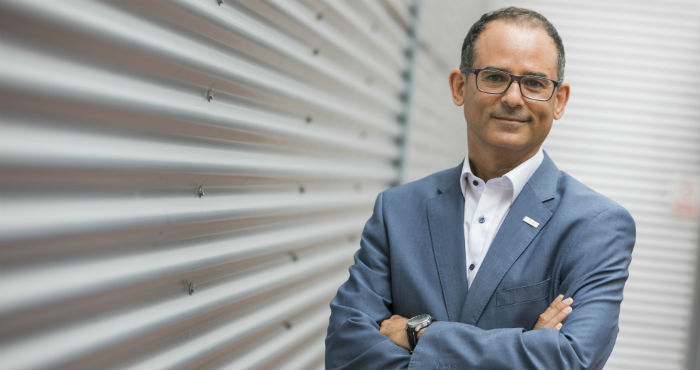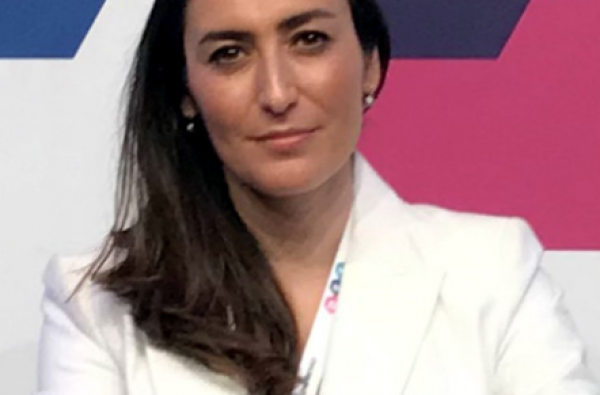Change ownership to renting with technology and data, whether it is a car, a house or a shower. This is the main idea of the vision of the president of Bosch for Spain and Portugal, Javier González Pareja, who regrets the years in which products were created without asking customers.
When the Bosch headquarters in Madrid (Spain) are visited for the first time, the industrial character of the offices is surprising. A sensor production plant is located just a few meters from the office of its president, Javier González. This company of German origin has clear foundational values, with more than a century behind it, innovation is part of its DNA. González insists that innovation is not worth innovating for the sake of innovating and that the customer must first be listened to.
Every year, MIT Technology Review publishes a list of the 10 technologies with the greatest capacity to change the world. One of the technologies on this year's list is artificial intelligence (AI) in the cloud. These platforms democratize automatic learning tools by putting them in the cloud, which could bring AI to every corner of the world. What do you think of this trend? How is your industry preparing to tackle this innovation and your company in particular?
AI is key to Bosch and he wants to use it to have intelligent products and services. One of our strategies is that, by 2020, all our new products will have IP connectivity and, for example, a simple drill incorporates location services or can warn you to charge the battery or change the drill bit. In short, what we want is to make the lives of our customers easier and safer.
A clear example is the autonomous car. Obviously it needs AI. When you ask yourself what autonomous driving is going to achieve, the answer is to almost zero the number of accidents. An intelligent, connected car, which respects rest periods and cannot drink alcohol, makes our lives safer.
Do you envision a future in which instead of selling drills you charge for the holes made thanks to connectivity?
Of course. Focus on AI and people, and see how business models change. For example, in the area of mobility, which accounts for more than 50% of Bosch's business, more traditional generations want to have a car, even though vehicles in the city are stopped and 92% of the time wasted. You have to ask yourself: Do I want a car or do I want the service of mobility? That mobility means that I can own one, travel in a shared car or on a shared motorbike. A few weeks ago, Bosch launched in Madrid a shared electric motorcycle service called Coup. It's about selling any product as a service.
Another example is heating systems. In Africa, an important layer of the population cannot buy a heater, but needs hot water. So we are starting to sell the shower as a service. The user pays for the times he takes a shower.
Will we still own washing machines and heaters? Some supply companies already sell you the gas, then the maintenance and in a monthly fee, you include the boiler. This change from possession to rent is what we also see in the housing market. We want to be a provider of solutions for the client because to wash your clothes you will need a physical device, but another thing is that the washing machine tells you how long it will take or how much detergent to use.
What is the role of data when you stop selling a product to sell a service?
Someone has said that data is the oil of the future. What can you do with this? For example, predictive maintenance. If I have five identical machines and something has happened to one, it can happen to the others as well. In our workshops, in the Bosch Car Service network, if I have a database of the most frequent problems of each car model, I will know that this vehicle can have a greater incidence and I can fix it earlier, having in advance the replacement parts. More importantly, how can we use health data to help people? Many of us wear a watch that controls our pulses, if I can monitor some parameters, I can get added value by knowing what to do with them.

How does the customer benefit from Bosch having this data?
The revolution in the world of data influences all phases of the product life cycle. The more we make use of data, the greater the benefits.
I'll give the example of the car again. If I go with my car to a workshop and I don't know what happens to it, the workshop can consult the most common faults to prepare the parts. How many times have we arrived at the workshop to be told that we have to wait for the part? In the case of a washing machine, you can measure the dirt on the clothes to know how much detergent to pour or that the washing machine itself dosed. Our refrigerators already have connectivity, if I know what my weekly milk consumption is, I know that I have to order so much. The applications are unlimited.
An example that I loved for kitchens: pots connected by Bluetooth that detect that the water is boiling because it has reached 100 °C and that says to the plate: "You can turn off".
How do these services integrate with other industries?
Depending on the business, they will be our partners or they will be final consumers. A very disruptive example is the case of insurance companies. What is going to happen the day when there will hopefully be no accidents? How do car insurance premiums work right now? By sex and age, the premium is differentiated on the basis of subjective statistical parameters applied to a population. We know that there are 20-year-olds who drive very carefully and older ones who go crazy. If I can analyse the driving style: how many accelerations I give, how I move the steering wheel or if I respect the speed limits, the insurer can discriminate the premium much better.
But that way there could be customers that nobody wants to protect. What is Bosch's vision of these values?
We believe that the business we do has to generate trust. One example is that Bosch is not in military technology. But a tank has parts that are also equipped in a truck. Someone asked me what was the greatest risk in AI. The biggest challenge is to decide if we want the algorithms to be conscious. What makes a human being different from a robot? Like everything in life, there are positive and negative parts.
At Bosch, we see where we want to be and where we don't want to be, and society has to decide. A clear case is that of autonomous driving. What do I do? Do I put the driver's life at risk or save three children in a zebra crossing? It is a subject that goes far beyond technology itself. But technology will probably arrive before we have resolved the ethical issues.
One of the risks of connected cars is that there are different actors involved, external suppliers that can be the focus of hacking. What is Bosch doing to prevent this?
Bosch's decision was to create its own cloud so that customers who want to have access to Bosch security standards. In addition, we have the subsidiary ESCRYPT where cybersecurity experts work to protect our products. For example, if a hacker is able to access the system from an autonomous car, the program must be able to recognize and ignore any 'counter-logical' order, such as a full throttle in a curve.
What capacities should managers have to face innovation?
We believe that a fundamental precondition is a cultural change. We need to create more enjoyable forms of collaboration, increase feedback, eliminate physical barriers. We have to make the company more horizontal and we managers have to provide added value, we have to become the coach. One of the challenges is the insecurity that enters many people about how their work is going to be between now and 'X' years. How many jobs is industry 4.0 going to destroy? Well, surely not as many as it is going to create.
Before entering into agile methodologies, what companies like Bosch have traditionally done has been to develop a product that was technologically the no more, without asking customers what they wanted. I started in a filter factory where it was said: "The most demanding customer asks for five bars, but we give him eight bars". First, we were assuming that our customers didn't know what they wanted and second, were they going to pay us for that extra we offered them?
And what should be the role of the CEO in the digital transformation?
Inspire and set an example. In the case of digitizing the company, start by digitizing yourself, being active in social networks, the challenges are very great. You have to remove uncertainties, fears, decide to really change. You have to disrupt yourself before others break you. Create disruption teams to see technologies in which we can be number one, help people get their heads around "it's just that we've always done this".
What fears does the CEO have when he sees that decisions will be made that could destroy a business?
If you can only focus on three points: you have to be authentic, you have to be brave, not negligent, to make decisions that others have not made or to make them more quickly. The third is to create a working environment where people are doing well. Work is where we spend most of our lives. If in this environment you are not happy, as a person you are not going to be, nor are you going to be so productive.
By Olga Rodríguez



